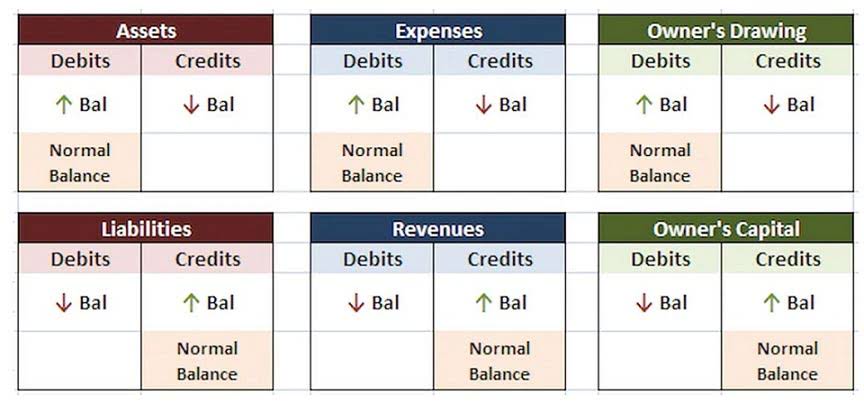Whether you hire an accountant or opt for other accounting software, you need to understand the basics of startup accounting. The best rule of thumb for startup accounting is to hire a professional accountant to help you manage your business’s finances. However, there are several accounting software options available to help you manage your startup finances contra asset account whether or not you choose to hire an accountant. Most accounting software for startups will automatically compare bank accounts with general ledger entries. If you aren’t using software, you need to match your bank account statements with the entries in the general ledger to ensure they line up.
What is Qualified Business Income?
The simplest form of accounting, cash basis accounting tracks income when it is actually received and expenses when they are actually paid. Accounting may not seem as urgent as finding your first customers or refining your product, but it’s just as critical to your success. Without a solid accounting foundation, you risk losing sight of your financial health, which can derail your growth. The cost of accounting varies based on the complexity of your business transactions.
Free Course: Understanding Financial Statements
So after you pick a business structure and form your company, in regards to accounting, tackle it straightaway. If you feel you can take care of it by yourself, then by all means, go for it. Otherwise, don’t be afraid to enlist the help of an accountant, CPA, and/or bookkeeper. Other things you need to understand include income taxes, payroll taxes, and any other applicable taxes. Proper expense tracking helps with budgeting, as well as tax preparation. Keep detailed accounting services for startups records of all business expenses, including your receipts.
Financial Records: What To Keep And For How Long
- Let’s face it, finances can be tedious and time-consuming, and running a small business is hard enough as it is.
- Also note that if your startup starts to make more than $5 million a year, you’re legally required to do accrual accounting (as stated in GAAP).
- Your accountant has some expertise to offer when it comes to raising capital.
- If you’re among these entrepreneurs, here are some steps you can take to kick off accounting at your new business.
- If you do manual accounting, you’ll need to go over every entry in your bank statement and match them with the general ledger entries.
However, biotech startups often overlook key components when reporting R&D costs. This often stems from insufficient attention to detail or improper cost allocation. A common issue is failing to fully capture the salaries and wages of employees directly involved in R&D activities. Other significant expenses that are frequently missed include costs for equipment, materials, third-party research services, regulatory fees, and software used in R&D efforts. As a result, reported costs are often less accurate than they should be. In the beginning, most of your transactions will likely be sales and expenses.
As per Gov.uk, small businesses and sole traders that have revenue or turnover of less than £150,000 per year can use cash accounting. Businesses can change from cash to accrual accounting during this stage and once they grow beyond this figure. Regularly monitor your cash flow Legal E-Billing to ensure you have enough funds to cover operational costs and unexpected expenses.
Make sure you understand how each structure fits your budget, and agree on how you’ll be charged before any work begins. No, hiring an accountant isn’t necessary in order to do your finances. You can automate most of your accounting process using accounting software for considerably cheaper. The income statement (also known as the profit and loss statement) reveals how financially successful your startup has been for a period of time. The accounting process is long and complex, so writing everything down by hand (or typing it) isn’t convenient unless you’re running a very small business. It can be time-consuming, tiring, and leaves plenty of room for accounting errors.
Accounting For Startups – The Entrepreneur’s Guide
Addressing these areas proactively can save you time, money, and stress in the long run. Choosing the right accounting method early on has a significant impact on investor relations and potential exit strategies. While cash basis accounting might be simpler for early-stage startups, accrual accounting offers a more accurate and realistic view of your company’s financial health. This is because it recognizes revenue when earned and expenses when incurred, regardless of when cash changes hands. Kruze Consulting’s resource on accounting methods provides a deeper dive into this topic. Detailed record-keeping is non-negotiable for any successful startup.
Small Business Accounting Services
- Firms that rely on automated accounting systems or who provide limited services can easily miss potential problems, like invoicing issues, double payments, and missed collections.
- For instance, advertising fees spent to market a product or service would be considered an expense.
- While some founders might handle basic accounting tasks at first, professional accountants bring a high level of expertise and efficiency, especially as the business grows.
- To begin, you’ll need to figure out which banking institution you’d like to open an account with.
- For more information about the value of accounting services for your startup, contact us.
- And our advice can grow with your company, from simple startup CPA accounting to part-time CFOs.
The income statement, also referred to as the Profit & Loss or P&L statement (as illustrated in CFI’s example above), is arguably the most important financial statement. Every business plan should include an income statement because it’s a key financial snapshot that helps to evaluate your company’s performance. Each statement breaks down key components of your business like revenue, expenses, assets, liabilities and different types of cash flow.
To support planning for growth
One notable case study involves a tech startup that integrated a cloud-based financial management system. The startup saw a 40% reduction in time spent on manual data entry and reconciliation. This allowed the finance team to focus more on strategic initiatives rather than routine tasks. Another case study highlights a startup that utilized machine learning algorithms to predict financial trends. By leveraging advanced analytics, the company was able to anticipate cash flow issues and adjust their budgets proactively. This predictive capability helped the startup maintain financial stability during periods of rapid growth.






Leave A Comment